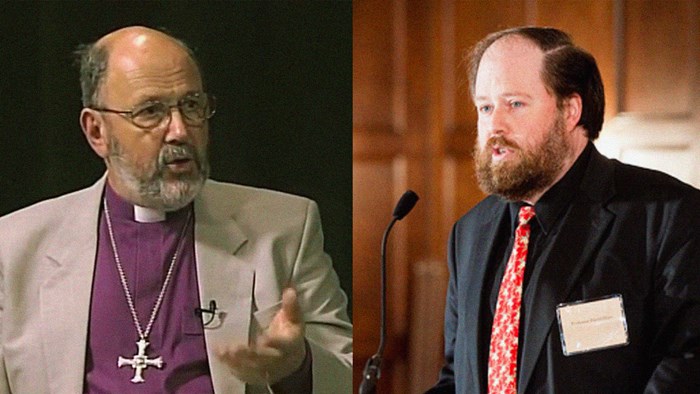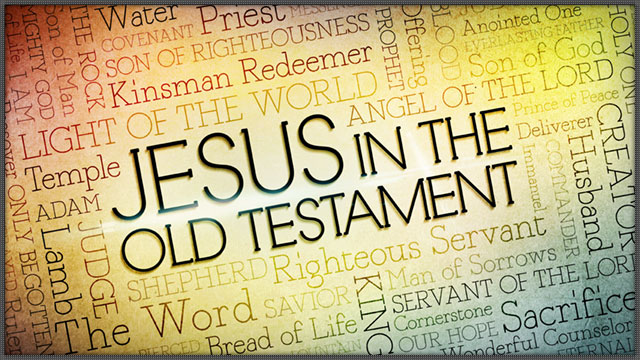Michael McClymond has done an amazing study in his new interpretation of universalism called "The Devil's Redemption." He cites over 3000 books and articles, he seems to have turned over every stone and related author who has written on this topic. As one who is a student of both history and patristics, I am therefore somewhat dismayed and shocked at McClymond's overall conclusions. He deduces a connection between Gnosticism and Jewish Kabbalism with universalism. He critiques major scholars like Barth and Balthasar without really giving them a fair hearing. He equates some people as universalists who resist the claim while giving others who have strong universalistic tendencies as not adhering to any kind of universalism.
It seems that McClymond is out of his field when it came to tackling this rich and deep subject. Maybe his bias against universalism simply could not look at this subject objectively and he is certainly dismissive of patristic scholars like Ilaria Ramelli who is a scholar supreme on this issue knowing the first hand sources intimately and reading them in the original languages which McClymond is unable to do. So I will simply let Dr. Ilaria Ramelli below give her own response to McClymond and leave it at that:
Origen certainly knew "gnostic ideas"--far from my being
ignorant of it, I referred to Strutwolf's book in a separate essay
ten years ago (1)--and of course both Origen and most
"gnostics" shared some (broadly conceived) Platonic ideas
applied to Christianity. But Origen was professedly antignostic, as is
evident in all his extant writings, even in the recently discovered
Munich homilies (see below). Origen spent his life refuting what he
deemed gnostic tenets such as predestinationism, different natures among
rational creatures, the separation between a superior God and an
inferior--if not evil-demiurge, the severing of divine justice from
divine goodness, Docetism, the notion of aeons as divine and the whole
"gnostic" mythology, the refusal to interpret the OT
spiritually and the NT historically, and more. Origen regarded
"gnostic" Platonism as a bad Platonism, while he intended to
construct an "orthodox" Christian Platonism, not only against
other, non-Platonic philosophical schools, and "pagan"
Platonism, but also against what he regarded as the unorthodox Christian
Platonism of "gnosticism." I argued for this seminally in the
chapter on Origen in the book under review, and will support this
interpretive line further in a forthcoming monograph. (2)
On "gnostic" theories of apokatastasis, after my
preliminary work in the Journal of Coptic Studies--to which I referred
in my monograph under review (this is why I devoted only a few pages
there to apokatastasis in "gnosticism")--further investigation
is underway. I copiously cited and discussed Michael Williams's
Rethinking "Gnosticism An Argument for Dismantling a Dubious
Category, not only in the above-mentioned essay in Journal of Coptic
Studies, but also, for example, in a review of Karen King's What Is
Gnosticism?, and in substantial articles on gnosticism for the
Encyclopedia of Ancient Christianity and the Brill Encyclopedia of Early
Christianity, (3) The pattern of "fall and restoration of
souls" is common not only to Origen and the "gnostics,"
as McC suggests, but to all patristic Platonists, including the
anti-Manichaean Augustine (who speaks of creatures' deficere and
their restoration by God). More broadly, it is common even to all
Christians, who share the biblical story of the Fall and believe in the
restoration brought about by Christ.
If one objects that the difference between Origen's and the
gnostics' "fall and restoration of souls" on the one
side, and the "orthodox" Christians on the other, lies the
resurrection of the body, included in the "orthodox" account
but excluded by the "gnostics" and Origen, it must be observed
that Origen sided more with "orthodox" Christians than with
the "gnostics" regarding the resurrection. That Origen denied
the resurrection of the body is a misconstruction--probably originating
in his twofold conception of the resurrection, of body and soul, later
developed by Evagrius--that cannot stand careful investigation, just as
the supposition that he admitted of disembodied souls. Much can be
argued against this, and it can be shown that when Gregory Nyssen
criticized the preexistence of disembodied souls, he was not targeting
Origen, who did not believe this.
Gregory's statement that his argument against preexistent
souls had to do with "those before us who have written about
principles" (Horn. op. 28.1) is, for many reasons, (4) not a
reference to Origen, as is often assumed and as McC believes (fn. 23); I
mention here only three of those reasons: (1) Gregory, in the
aforementioned passage and in De anima, is attacking the preexistence of
disembodied souls together with metensomatosis, which Origen explicitly
rejected; thus, Gregory's target could not have been Origen. (2)
Among those who supported metensomatosis and the preexistence of
disembodied souls were several Middle Platonists and Neoplatonists who
wrote works Peri Archon, including Porphyry, whom Gregory knew very
well. (3) Moreover, Gregory does not say "one of us"
Christians, but "one of those before us" ([TEXT NOT
REPRODUCIBLE IN ASCII]), a formula that he regularly uses to designate
non-Christians, such as Philo.
Thus, it is true that Nyssen "rejected the idea of souls
existing outside of mortal bodies," or better, he rejected the idea
of souls existing outside of bodies tout court', but it is not the
case that he therefore "offered a teaching on apokatastasis no
longer consonant with Origen's." In fact, Origen never
affirmed the preexistence of disembodied souls, nor did Gregory ever
state that the soul comes into existence together with the mortal body
(Gregory was all too aware of the "perishability axiom"). Both
Gregory's protology and eschatology are in continuity with those of
Origen.
Indeed, as for the distinctions between Origen and Nyssen that I
allegedly blurred, my extensive research (supported by a research
fellowship from Oxford and expected to be published in a monograph)
shows Nyssen's creative dependence on Origen's true thought in
all fields. Misrepresentations of Origen's ideas clearly falsify
the whole picture. The distinctions are between Origen's alleged
thought--a misconstruction ultimately stemming from the Origenistic
controversies--and Nyssen's, not between Origen's actual
thought (as it emerges from his authentic texts) and Nyssen's. In
fact, a painstaking critical assessment of Origen's genuine ideas
allows for a reassessment of Origen's influence on many other
patristic thinkers (from Nyssen to Augustine, Evagrius to Maximus, and
Ps.-Dionysius to Eriugena). Indeed, this brings about--borrowing
McC's words--"a new paradigm for understanding the
church's first millennium" (p. 817).
That Origen envisaged a "static afterlife," for instance,
is questionable; and therefore it is debatable that "Gregory
[Nyssen], Maximus Confessor, and Eriugena all rejected Origen's
static afterlife" (p. 820). I have extensively argued elsewhere
that it is exactly in Origen that Gregory found inspiration for his
doctrine of epektasis, which is the opposite of a static eschatology and
is closely linked with apokatastasis. (5) Both Origen's and
Gregory's eschatological ideas will make their way into
Maximus's [TEXT NOT REPRODUCIBLE IN ASCII]. Mateo-Seco (referenced
by McC, n. 32) clearly acknowledges in Gregory the doctrine of universal
restoration; Giulio Maspero's objections on this specific point are
thoroughly refuted already in the monograph under review (pp.
43336--but, apart from this, Maspero's work on Gregory is
insightful and valuable), and a full response to Baghos's argument
is included in the aforementioned research on Origen and Nyssen.
McC notes, "The vision of the eschaton in Evagrius's
Great Letter ... involved a pantheistic or pantheizing dissolution of
the Creator-creature distinction." However, in his Great
Letter/Letter to Melania Evagrius makes clear that there will be no
confusion of substance between creatures and creator, but a concord of
will (see pp. 47475): "The one and the same nature and three
Persons of God, and the one and the same nature and many persons of
God's image, will remain eternally, as it was before the
Inhumanation, and will be after the Inhumanation, thanks to the concord
of wills." (6) Therefore, no pantheistic interpretation of Evagrius
is tenable. While Guillaumont offered an invaluable edition of
Evagrius's Kephalaia Gnostika (which, apart from some new readings
from the manuscript and some emendations, I kept as a basis for my own
commentary), (7) his view that Evagrius was a radical,
"isochristic" Origenist whose ideas were the real target of
the Second Council of Constantinople needs reconsideration. (8)
Regarding Augustine, I have argued in my monograph that he embraced
apokatastasis during his long anti-Manichaean phase, and not until his
death, notably not in his anti-Pelagian phase. Contrary to what McC
argues ("a point Ramelli fails to mention," fn. 9), I do
discuss Retractationes 1.6 (on p. 674, also mentioned in my ancient
authors index on p. 830), showing that Augustine was later embarrassed
by his earlier adhesion to the apokatastasis doctrine, especially in De
moribus 2.7.9. McC observes that in the latter passage I translated
ordinat as "orders and leads," which he deems incorrect:
"The verb is ordinat, which translates as 'orders' and
not as 'orders and leads.' There is no second verb alongside
of ordinat. Moreover, Augustine's statement that creatures are
ordered toward restoration did not imply that all will attain it"
(p. 818). Now, that all fallen creatures are ordered and guided by
God's goodness until they are restored ("Dei bonitas ... omnia
deficientia sic ordinat ... donee ad id recurrant unde defecerunt")
manifestly means that all are restored. Ordinare means both "to
order, arrange" and "to marshal," "to manage,
regulate, direct"; (9) hence the double translation of ordinat as
"orders and leads," the subject being God, the object being
rational creatures.
As to the (posthumous) condemnation of Eriugena's Periphyseon
and its causes, I analyze them on the first page of my treatment of
Eriugena. I deem him the last patristic thinker in the West, obviously
not in the confessional sense as canonized Father, but because he relies
so heavily on patristic authorities--from Origen to the Cappadocians,
from Augustine to Pseudo-Dionysius--in all aspects of his philosophical
theology. McC admits that Eriugena's notion of the eschaton
involves a universal return of souls to God--and indeed Eriugena is
unequivocal when he claims that, thanks to Christ's inhumanation,
"every creature, in heaven and on earth, has been saved"
(Periphyseon 5.24)--but he avers that "for Eriugena not all souls
were happy in their final state with God." In fact, however,
Eriugena is adamant that all rational creatures in their substances will
be happy; no substantial nature can "be in unhappiness"
(Praed. 16.1). All natures will enjoy "a wonderful joy"
(Praed. 19.3). The evilness derived from sinners' perverted will
perishes in the other world; only their substance will remain
(substantia permansura, malitiaperitura, and this--their substance--will
be happy (Periphyseon 5.931 A).
McC is correct that according to Eriugena "all ... shall
return into Paradise, but not all shall enjoy the Tree of Life--or
rather ... not all equally" (Periph 1015A), but this refers to the
distinction between salvation and deification, and does not imply that
not all will be saved. Sometimes Eriugena even suggests that deification
itself will extend to all. For he postulates the return of all to God,
and transformation of all into God, through their primordial causes; at
that point all will enjoy peace and eternal splendor: "Quando omnis
sensibilis creatura in intelligibilem et omnis intelligibilis in causas,
et causae in causarum causa (quae Deus est) mutabuntur aetemaque requie
gaudebunt ineffabilique claritate fulgebunt et sabbatizabunt"
(Periph. 5.991C). At that point, it no longer even makes sense to speak
of a beatific vision not shared by all.
Let us come to Basil's problematic question-and-answer passage
against apokatastasis, where he (if the passage is authentic) stated
that his own brother, whom he appointed bishop, and saintly sister are
inspired by the devil. Here I hypothesize not only--as McC has it--an
interpolation (common in Basil's question-and-answer works;
moreover, anti-Origenian interpolations and glosses are abundantly
attested in the case of Nyssen in the manuscripts themselves), but also
pastoral concerns. If that text were Basil's, in contradiction to
his own linguistic usage and his knowledge of Origen's argument
against what is claimed in that passage, this could be explained in
light of the intended monastic, not scholarly, audience of that oeuvre.
For Basil shared Origen's own pastoral worries about the disclosure
of the apokatastasis doctrine to simple or immature people. My
hypothesis is furthermore supported by Orosius, who cannot be suspected
of embracing apokatastasis, and who explicitly attributes this doctrine
to Basil, as I argue in a separate article. (10) In Basil's
commentary on Isaiah, then--whose authenticity finds more and more
scholarly support--apokatastasis is simply obvious.
As for Rufinus, scholars are progressively exposing his deep
understanding of the aims of Origen's thought--entirely grounded in
the concern for theodicy--as well as his overall reliability as a
translator, who never altered but only abridged, simplified, and glossed
Origen's texts. This is also confirmed by the newly discovered
Greek homilies in the Munich codex, (11) which allow for further, fairly
extensive comparison between Origen's Greek and Rufinus's
translation.
McC writes:
One indication of Origen's reputation as a heretic during late
antiquity and the early medieval period is found in the wholesale
destruction of most of his writings. If, as Ramelli suggests, the
anathematizing of Origen--in the last place in Anathema 11--was not
original, then the interpolation must have been added so quickly to
the original text that no one recognized it as an interpolation.
But then how is Ramelli--almost 1,500 years later--able to identify
an interpolation when no one before her seems to have done so? (p.
818)
Even setting aside that the interpolation was certainly not
discovered by me, Photius in the ninth century could still read all of
Origen's Peri Archon in Greek: thus, even Origen's most
"dangerous" work was not yet destroyed by that time, over
three centuries after Justinian and the supposed anathemas against
Origen. On McC's hypothesis, this should have been the first oeuvre
of Origen to be burned, shortly after the Second Council of
Constantinople. Moreover, the Latin translation of Rufinus--especially
treacherous because it meant to present Origen as
"orthodox"--should have been destroyed; yet it survived up to
Eriugena and the mediaeval monasteries, and has reached us in numerous
manuscripts. Paradoxically, what has perished is not Rufinus's
version, but Jerome's (after his volte-face), aimed at uncovering
the allegedly heretical nature of Origen's work.
I am pleased that McC agrees that "aionios in ancient sources
need not mean 'eternal' in the absolute, unqualified
sense" (p. 824). (12) More precisely, it does not mean
"eternal" beyond the strictly philosophical Platonic tradition
(and certainly not in the Bible, where it has a number of other
meanings, e.g., "remote," "ancient,"
"mundane," "future," "otherworldly"). (13)
Contrary to what McC claims, I comment on Jude 6 as the only biblical
occurrence of aidios as describing punishment--but of fallen angels, not
of fallen humans (Christian Doctrine of Apokatastasis 33). Aidios in
Scripture never refers to punishment/death/fire in the other world for
humans.
I cited Latin, Greek, Syriac, and Coptic, the original often being
necessary for the language of restoration, but I always translated
Syriac and Coptic, and Greek when the passages were long or difficult,
for example in Pseudo-Dionysius. McC wonders why I reject the New
Testament Greek text in favor of a Syriac translation of it. My use of
the Vetus Syra (anterior to the Peshitta) in NT criticism is amply
justified, because it reflects a Greek Vorlage that is more ancient than
all extant Greek manuscripts, apart from perhaps a couple of fragmentary
papyri. (14) 151 referred to my previous works when necessary, to
document what I was saying in my monograph. Otherwise my assertions
would have seemed mere opinions unsupported by arguments; or else I
would have needed to repeat the whole arguments, but this would have
made the book (impossibly) longer.
Mine is a work of historical theology and patristic philosophy. As
such, it does not aim at defending or refuting apokatastasis. I have
rather argued--I hope forcefully and extremely carefully, for the first
time in a comprehensive monograph, how the apokatastasis doctrine is
biblically, philosophically, and especially christologically grounded in
its patristic supporters. This refutes views such as De Faye's,
cited by McC, that "Origen made Christ all but irrelevant to the
process of salvation" (p. 815). I have painstakingly traced and
disentangled the various strands of this doctrine, and dismantled
widespread assumptions about its opposition to the doctrine of free will
and its dependence on "pagan" philosophy more than on
Scripture in the patristic era. I have also demonstrated that this
theory was present in more thinkers than is commonly assumed--even in
Augustine for a while--and was in fact prominent in patristic thought,
down to the last great Western Patristic philosopher, Eriugena.
Augustine himself, after rejecting apokatastasis, and Basil attest that
still late in the fourth and fifth centuries this doctrine was upheld by
the vast majority of Christians (immo quam plurimi).
Of course there were antiuniversalists also in the ancient church,
but scholars must be careful not to list among them--as is the case with
the list of "the 68" antiuniversalists repeatedly cited by McC
on the basis of Brian Daley's The Hope of the Early Church--an
author just because he uses [TEXT NOT REPRODUCIBLE IN ASCII], or the
like, since these biblical expressions do not necessarily refer to
eternal damnation. Indeed all universalists, from Origen to Gregory
Nyssen to Evagrius, used these phrases without problems, (15) for
universalists understood these expressions as "otherworldly,"
or "long-lasting," fire, educative punishment, and death.
Thus, the mere presence of such phrases is not enough to conclude that a
patristic thinker "affirmed the idea of everlasting
punishment" (p. 822). Didache mentions the ways of life and death,
but not eternal death or torment; Ignatius, as others among "the
68," never mentions eternal punishment. Ephrem does not speak of
eternal damnation, but has many hints of healing and restoration. For
Theodore of Mopsuestia, another of "the 68," if one takes into
account also the Syriac and Latin evidence, given that the Greek is
mostly lost, it becomes impossible to list him among the
antiuniversalists. He explicitly ruled out unending retributive
punishment, sine fine et sine correctione. (16)
I have shown, indeed, that a few of "the 68" were not
antiuniversalist, and that the uncertain were in fact universalists, for
example, Clement of Alexandria, Apocalypse of Peter, Sibylline Oracles
(in one passage), Eusebius, Nazianzen, perhaps even Basil and
Athanasius, Ambrose, Jerome before his change of mind, and Augustine in
his anti-Manichaean years. Maximus too, another of "the 68,"
speaks only of punishment aionios, not aidios and talks about
restoration with circumspection after Justinian, also using a persona to
express it. Torstein Tollefsen, Panayiotis Tzamalikos, and Maria Luisa
Gatti, for instance, agree that he affirmed apokatastasis.
It is not the case that "the support for universalism is
paltry compared with opposition to it" (p. 823). Not only were
"the 68" in fact fewer than 68, and not only did many
"uncertain" in fact support apokatastasis, but the theologians
who remain in the list of antiuniversalists tend to be much less
important. Look at the theological weight of Origen, the Cappadocians,
Athanasius, or Maximus, for instance, on all of whom much of Christian
doctrine and dogmas depends. Or think of the cultural significance of
Eusebius, the spiritual impact of Evagrius or Isaac of Nineveh, or the
philosophicotheological importance of Eriugena, the only author of a
comprehensive treatise of systematic theology and theoretical philosophy
between Origen's Peri Archon and Aquinas's Summa theologiae.
Then compare, for instance, Barsanuphius, Victorinus of Pettau,
Gaudentius of Brescia, Maximus of Turin, Tyconius, Evodius of Uzala, or
Orientius, listed among "the 68" (and mostly ignorant of
Greek). McC's statement, "there are no unambiguous cases of
universalist teaching prior to Origen" (p. 823), should also be at
least nuanced, in light of Bardaisan, Clement, the Apocalypse of
Peter's Rainer Fragment, parts of the Sibylline Oracles, and
arguably of the NT, especially Paul's letters.
Certainly, "there was a diversity of views in the early church
on the scope of final salvation." Tertullian, for instance, did not
embrace apokatastasis. But my monograph is not on patristic eschatology
or soteriology in general, but specifically on the doctrine of
apokatastasis. Thus, I treated the theologians who supported it, and not
others. It is illogical to criticize a monograph on patristic
apokatastasis for not being a book on the diversity of early Christian
eschatological teachings; the latter already existed-for example, works
by Brian Daley and Henryk Pietras, as I explain in my introduction. My
monograph has a clearly different scope, methodology, focus, new
research, and, inevitably, different conclusions. A review of a
patristic book should be informed by fresh, direct reading (in the
original languages) of the patristic theologians involved and of recent
research into, and reassessment of, their thought. It should reflect a
thorough study of the interactions of patristic philosophy and theology
with ancient philosophy. It should not, in other words, limit itself to
restating in 2015 the conclusions of another scholar's 1991 book.
DOI: 10.1177/0040563915605265
Ilaria L. E. RameMi
Sacred Heart Major Seminary, Ml; Catholic University, Milan; Oxford
University
Author biography
Maria Ramelli, FRHistS, is Professor of Theology and Bishop K.
Britt Chair in Dogmatics/ Christology at the Graduate School of
Theology, Sacred Heart Major Seminary (affiliated with Thomas Aquinas
University "Angelicum"); the director of international
research projects; Senior Visiting Professor of Greek Thought (Harvard)
as well as of Church History; Senior Fellow in Religion (Erfurt
University) and in Ancient Philosophy (Catholic University, Milan, since
2003); and Visiting Research Fellow (Oxford University). She has taught
courses and seminars and delivered invited lectures and conferences in
numerous leading universities in Europe, North America, and Israel. She
has authored numerous books, articles, and reviews in foremost scholarly
journals and series, on ancient philosophy, patristic theology and
philosophy, ancient Christianity, and the relationship between
Christianity and classical culture.
(1.) "Origen and the Stoic Allegorical Tradition: Continuity
and Innovation," Invigilata Lucernis 28 (2006) 195-226.
(2.) Origen of Alexandria as Philosopher and Theologian: A Chapter
in the History of Platonism.
(3.) Review of Karen King, What Is Gnosticism? (Cambridge, MA:
Harvard University, 2003), Invigilata Lucernis 25 (2003) 331-34;
"Gnosis-Gnosticism," in Encyclopedia of Ancient Christianity,
3 vols., ed. Angelo DiBerardino (Downers Grove, IL: Inter Varsity, 2014)
2:139-47; "Gnosis/Knowledge," in Brill Encyclopedia of Early
Christianity (Leiden: Brill, forthcoming).
(4.) Some of these I expounded in "Preexistence of Souls? The
[TEXT NOT REPRODUCIBLE IN ASCII], of Rational Creatures in Origen and
Some Origenians," in Studia Patristica 56, ed. Markus Vinzent
(Leuven: Peeters, 2013) 167-226; I give further reasons in "Gregory
of Nyssa's Purported Criticism of Origen's Purported Doctrine
of the Preexistence of Souls," forthcoming from Harvard University
Press; and in "Gregory of Nyssa," in A History of Mind and
Body in Late Antiquity (Cambridge, UK: Cambridge University,
forthcoming).
(5.) "Apokatastasis and Epektasis in Horn, in Cant.: The
Relation between Two Core Doctrines in Gregory and Roots in
Origen," in Proceedings of the XIII International Colloquium on
Gregory of Nyssa (Leiden: Brill, forthcoming).
(6.) Evagrius, Letter to Melania 23-25.
(7.) Ilaria L. E. Ramelli, Evagrius's Kephalaia Gnostika
(Atlanta: SBL, 2015).
(8.) Ilaria L. E. Ramelli, "Evagrius Ponticus, the Origenian
Ascetic (and not the Origenistic 'Heretic')," in Orthodox
Monasticism, Past and Present, ed. John McGuckin (New York: Theotokos,
2014) 147-205.
(9.) S.v. "ordino, -are" Oxford Latin Dictionary (Oxford:
Clarendon, 1968) 1266.
(10.) Ilaria L. E. Ramelli "Basil and Apokatastasis: New
Findings," Journal of Early Christian History 4(2014) 116-36.
(11.) Lorenzo Perrone, ed., Origenes: Die neuen Psalmenhomilien:
Eine kritische Edition des Codex Monacensis Graecus 314 (Berlin:
deGruyter, 2015) GCS NF 19.
(12.) For full analysis see Ilaria L. E. Ramelli and David Konstan,
Terms for Eternity: Aionios and Aidios in Classical and Christian Texts
(Piscataway, NJ: Gorgias, 2007; new editions 2011, 2013); and Ilaria
Ramelli, Tempo ed eternita in eta antica epatristica: Grecita, ebraismo
e cristianesimo (Assisi: Cittadella, 2015).
(13.) Full analysis in Ramelli and Konstan, Terms for Eternity
37-70.
(14.) See, e.g., Sebastian P. Brock, The Bible in the Syriac
Tradition (Piscataway, NJ: Gorgias, 2006) 17, 19,33-34, 111-14.
(15.) For Origen, full analysis in my "Origene ed il lessico
dell'etemita," Adamantius 14 (2008) 100-29.
(16.) From Marius Mercator, PL 48.232.







